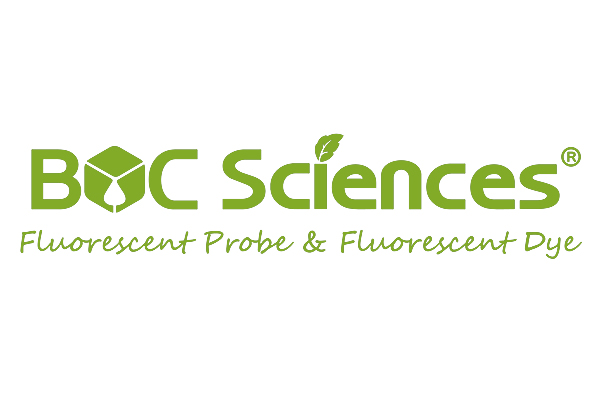
Nile Red | CAS 7385-67-3
| Catalog Number | A16-0144 |
| Category | Lipid Fluorescent Probes |
| Molecular Formula | C20H18N2O2 |
| Molecular Weight | 318.37 |
| Catalog Number | Size | Price | Quantity |
|---|---|---|---|
| A16-0144 | 10 g | $399 |
* Please be kindly noted products are not for therapeutic use. We do not sell to patients.
Product Introduction
Nile Red is a lipid-soluble fluorescent dye used for neutral lipid and vesicle staining. It emits bright yellow-red fluorescence in hydrophobic environments.
Chemical Information
Product Specification
Application
Computed Properties
Literatures
Patents
| Synonyms | Nile Blue A Oxazone |
| Purity | 95% |
| IUPAC Name | 9-(diethylamino)benzo[a]phenoxazin-5-one |
| Canonical SMILES | CCN(CC)C1=CC2=C(C=C1)N=C3C4=CC=CC=C4C(=O)C=C3O2 |
| InChI | InChI=1S/C20H18N2O2/c1-3-22(4-2)13-9-10-16-18(11-13)24-19-12-17(23)14-7-5-6-8-15(14)20(19)21-16/h5-12H,3-4H2,1-2H3 |
| InChIKey | VOFUROIFQGPCGE-UHFFFAOYSA-N |
| Density | 1.2 g/cm3 |
| Appearance | Green to Dark Green Solid |
| Boiling Point | 484.70 °C at 760 mmHg |
| Melting Point | 203-205 °C (lit.) |
| Excitation | 552 |
Nile Red is a hydrophobic fluorescent dye commonly used in biochemical and cellular studies. Here are some key applications of Nile Red:
Lipid Droplet Staining: Nile Red is extensively used for staining lipid droplets in cells, allowing researchers to visualize and quantify lipid accumulation. This is particularly valuable in the study of metabolic disorders, such as obesity and fatty liver disease. By illuminating lipid-rich regions with fluorescence, scientists can evaluate how cellular lipid dynamics respond to various treatments and genetic modifications.
Environmental Monitoring: Nile Red can be used as a fluorescent probe to detect hydrophobic contaminants in environmental samples, such as water and soil. This method is effective in monitoring pollution caused by hydrocarbons, oils, and other hydrophobic pollutants. The sensitivity and specificity of Nile Red make it an excellent tool for assessing environmental health and contamination levels.
Nanoparticle Research: In nanotechnology, Nile Red is employed to characterize the properties and behavior of lipid-based nanoparticles. By incorporating Nile Red into lipid nanoparticles, researchers can visualize and track these particles in biological systems using fluorescence microscopy. This helps in understanding nanoparticle distribution, cellular uptake, and potential applications in drug delivery.
Biological Membrane Studies: Nile Red is useful for investigating the structure and dynamics of biological membranes by partitioning into the lipid bilayer. Its fluorescence properties change in different microenvironments, providing insights into membrane fluidity, phase behavior, and lipid organization. This information is crucial for exploring membrane-associated processes and the effects of various biochemical interactions on membrane integrity.
| XLogP3 | 3.8 |
| Hydrogen Bond Donor Count | 0 |
| Hydrogen Bond Acceptor Count | 4 |
| Rotatable Bond Count | 3 |
| Exact Mass | 318.136827821 g/mol |
| Monoisotopic Mass | 318.136827821 g/mol |
| Topological Polar Surface Area | 41.9Ų |
| Heavy Atom Count | 24 |
| Formal Charge | 0 |
| Complexity | 564 |
| Isotope Atom Count | 0 |
| Defined Atom Stereocenter Count | 0 |
| Undefined Atom Stereocenter Count | 0 |
| Defined Bond Stereocenter Count | 0 |
| Undefined Bond Stereocenter Count | 0 |
| Covalently-Bonded Unit Count | 1 |
| Compound Is Canonicalized | Yes |
| PMID | Publication Date | Title | Journal |
|---|---|---|---|
| 22846507 | 2012-12-01 | Detection of apoptosis through the lipid order of the outer plasma membrane leaflet | Biochimica et biophysica acta |
| 23084897 | 2012-12-01 | Aggregate formation and radiolytic degradation of amphiphilic DNA block copolymer possessing disulfide bond | Bioorganic & medicinal chemistry letters |
| 22407940 | 2012-11-01 | Lipid biomarkers of glioma cell growth arrest and cell death detected by 1 H magic angle spinning MRS | NMR in biomedicine |
| 22985718 | 2012-11-01 | An improved high-throughput Nile red fluorescence assay for estimating intracellular lipids in a variety of yeast species | Journal of microbiological methods |
| 22989909 | 2012-10-15 | Novel fluorescent ceramide derivatives for probing ceramidase substrate specificity | Bioorganic & medicinal chemistry |
| Publication Number | Title | Priority Date |
|---|---|---|
| CN-115226785-A | A kind of O/W fat gel and its preparation method and 3D printing application | 2022-07-29 |
| CN-115029307-A | A method to delay the aging of MSCs | 2022-07-28 |
| CN-115212123-A | A kind of plant extract composition for inhibiting sebum secretion and its preparation method and application | 2022-07-28 |
| CN-115141220-A | An Aza-BODIPY compound and its application in nanoparticle tracking in vivo | 2022-07-22 |
| CN-115226898-A | A kind of bile system of small intestine slow-release erythromycin and its preparation method and application | 2022-07-22 |
Recommended Services
Recommended Articles

- Hoechst Dyes: Definition, Structure, Mechanism and Applications
- Mastering the Spectrum: A Comprehensive Guide to Cy3 and Cy5 Dyes
- Fluorescent Probes: Definition, Structure, Types and Application
- Fluorescent Dyes: Definition, Mechanism, Types and Application
- Coumarin Dyes: Definition, Structure, Benefits, Synthesis and Uses
- Unlocking the Power of Fluorescence Imaging: A Comprehensive Guide
- Cell Imaging: Definitions, Systems, Protocols, Dyes, and Applications
- Lipid Staining: Definition, Principles, Methods, Dyes, and Uses
- Flow Cytometry: Definition, Principles, Protocols, Dyes, and Uses
- Nucleic Acid Staining: Definition, Principles, Dyes, Procedures, and Uses
Recommended Products
Online Inquiry










